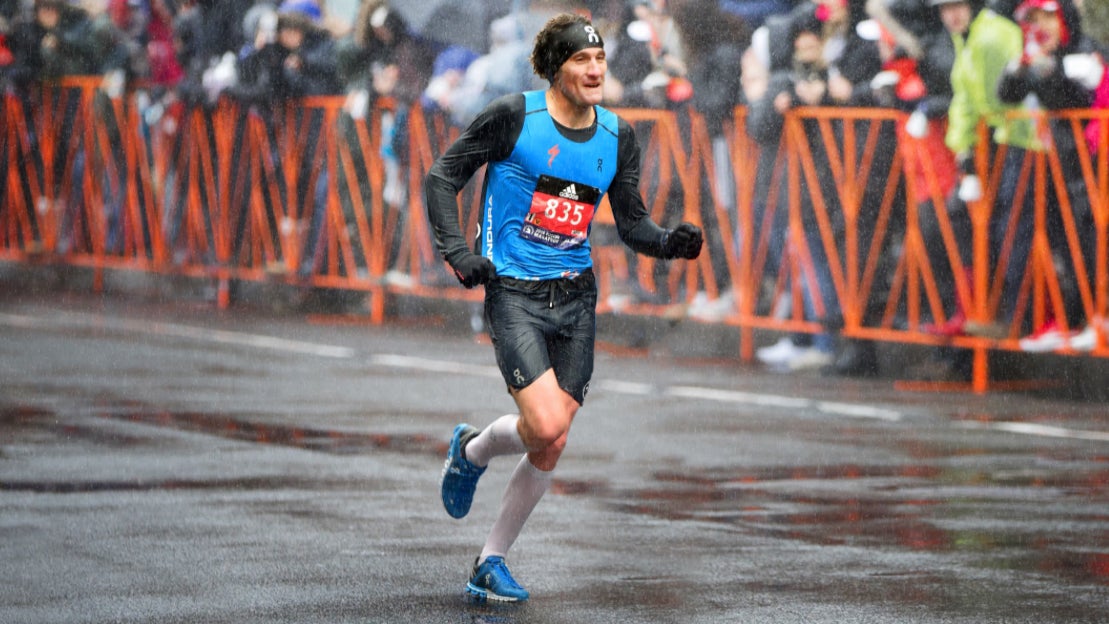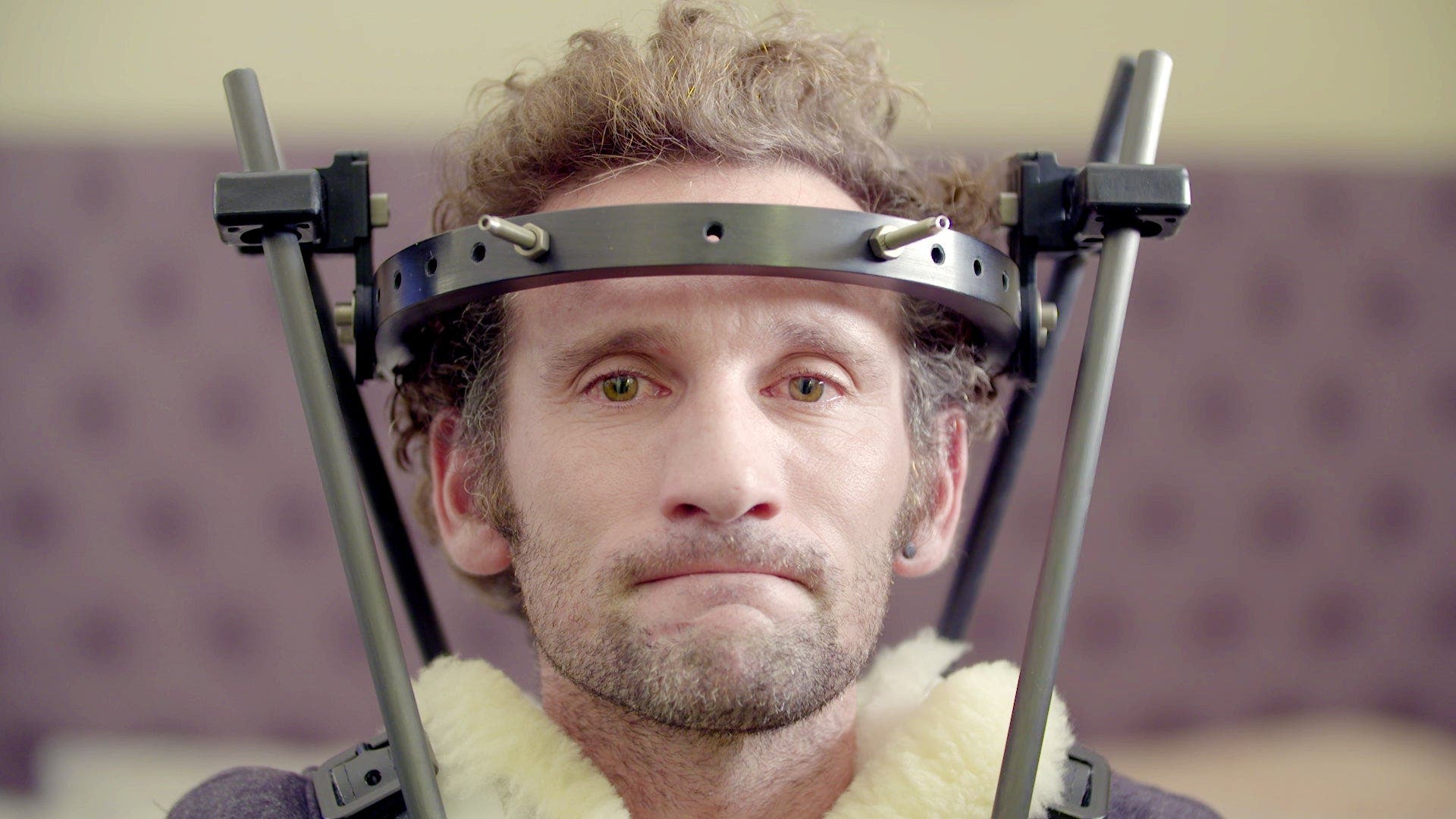Recalled: Tim Don's Epic Boston Marathon Comeback

Tim Don approaches the finish line at the 2018 Boston Marathon. (Photo: provided by On Running)
On April 12, 2018, the New York Times ran a story in the sports section with the headline “This Man Expects to Run a 2:50 in the Boston Marathon on Monday.” The headline in itself didn’t speak to anything extraordinarily remarkable: After all, finishing a marathon in 2 hours, and 50 minutes is certainly impressive, but that time typically wouldn’t even put him in the top 500 of the ultra-competitive event.
But what was remarkable was the photo that ran under the headline. It was a headshot of a man, his eyes closed, with a metal halo resting on his forehead and two shiny screws sticking out beneath a tuft of brown curls. That man? Ironman champion Tim Don. The contraption? A halo brace, which Don was locked into for three months after breaking his neck.

It was just six months before the Boston Marathon when Don lived through the worst nightmare of anyone who has ever climbed onto a bike: He was hit by an SUV while riding in Kailua-Kona, Hawaii as he prepped for the Ironman world championship, resulting in a fracture of his C2 vertebrae. At the time, Don, 40 was in the best shape of his life. He had recently set the Ironman world record in a jaw-dropping time of 7 hours, 40 minutes, and 23 seconds. Then, in an instant, Don went from a favorite for the world title to wondering if he would be able to walk–yet alone compete–again. Doctors proposed the halo brace as the only option that might allow him to do just that, but he would have to remain in it (with the screws firmly screwed into his skull) for three months.
RELATED: Tim Don on Accident: “I Didn’t Want That to be the End”
Don’s recovery and comeback–which was documented in the documentary The Man with the Halo–was nothing short of miraculous: Despite the pain and the inability to do many things on his own for so long, he eventually began training again, even biking on a trainer with the halo on. At one point, he decided he might be able to run the Boston Marathon. And he wouldn’t just run it: He’d try to hit 2 hours and 50 minutes, close to his run split during his world record race at Ironman Brazil.
Race day presented its own set of challenges: 2018’s weather was notoriously harsh: With a morning temperature of 37 degrees, it was the coldest Boston Marathon in more than three decades. There was also a driving rain and powerful headwinds, which led to many DNFs and the slowest finishing times among the winners in more than 30 years. Don, however, was undeterred. He had made it that far just to get to the starting line–and the hearty Brit wasn’t about to let a little weather keep him from finishing.
On limited training–his longest run prior to the marathon was just under 17 miles six days before the race–Don managed about 2:40 pace for the first 15 miles of the race. The seasoned, lifelong athlete (he raced his first triathlon in 1992) was able to realize that running that quick may prove disastrous in the latter miles, so he pulled back the reins and focused on 2:50 pace instead, which he managed to eclipse by 18 seconds.
“It was oh so cold, windy, and very wet, but one of the most fulfilling races I have ever done,” Don later remarked of the race. “Goodbye broken neck, Hello Kona!”
Instead of a finish line, Don says he saw his Boston performance as a start—and his re-entry into the upper echelon of the sport of triathlon.
“The thing about the Boston Marathon was it marked the end of the last 6 months. It’s not that I’m not focusing on recovery, I am, but I don’t want to see myself as a recovering athlete,” he said. “Now it’s like ‘I’m back, I’m a professional, I need to do my rehab but I also need to compare myself to the guys that are breaking course records.”
Don did return to racing triathlon, and continues to train and race today; he also serves as a team captain for Super League Triathlon and was a back-up guide for the Tokyo Paralympics.
RELATED: The Triathlete Hour Podcast: Tim Don Does Everything